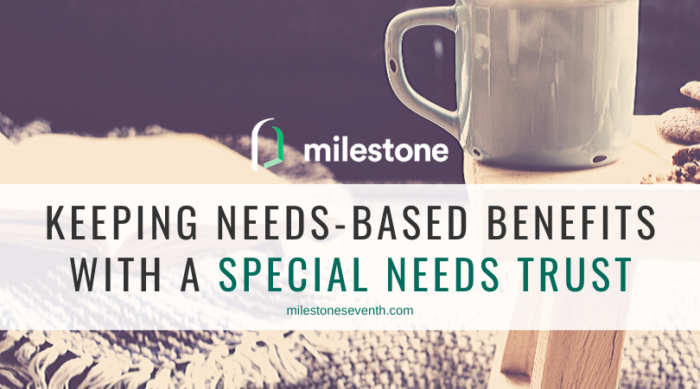For many injured plaintiffs and their families, a personal injury lawsuit is their first experience in the legal world. Upon hiring an attorney, it’s a deep-dive into the world of litigation: depositions, negotiations, maybe a jury trial. Settlement talks make it seem like a welcome reprieve is on the horizon (finally, it’s almost over!), but in reality, a new phase should be gearing up at that point.
Settlement planning is a critical step for anyone who is about to receive a monetary recovery from a lawsuit. Not many people are experts in long-term financial planning. So, what feels like a large settlement could drain fast without thinking ahead. On top of that concern, the increased income could take away a plaintiff’s eligibility for needs-based government benefits. A professional settlement planner helps with both of these issues: ensuring a person’s immediate needs and future needs are both met, and complying with any government programs to preserve benefits.
When is an SNT appropriate?
For some, an effective settlement planning tool is a special needs trust. Money from this type of trust works in tandem with needs-based programs by paying for things that a plaintiff’s government benefits do not cover. For example, a person receiving SSI and/or Medicaid typically cannot have more than $2,000 to his or her name without losing eligibility for benefits. Since a personal injury settlement is considered income, a beneficiary who receives a settlement could likely be immediately disqualified from the program. If he or she elects to establish a special needs trust with the incoming settlement, however, the money in the trust does not count as income as long as it pays for “non-countable” needs. These include a house, a car, a college degree, and many other things. So, a special needs trust allows people to live their lives, get what they need, and keep their benefits at the same time.
The only reason to create a special needs trust is to preserve benefits. There are other avenues plaintiffs and families can take to plan for settlement if needs-based benefits are not a concern. Even for those who receive Medicaid and SSI, a settlement planner can help determine whether replacing those benefits with different health care and other options is worth having more discretion with the flow of their settlement money.
If you are about to reach settlement, let’s talk about what you might do to best secure your financial future.


